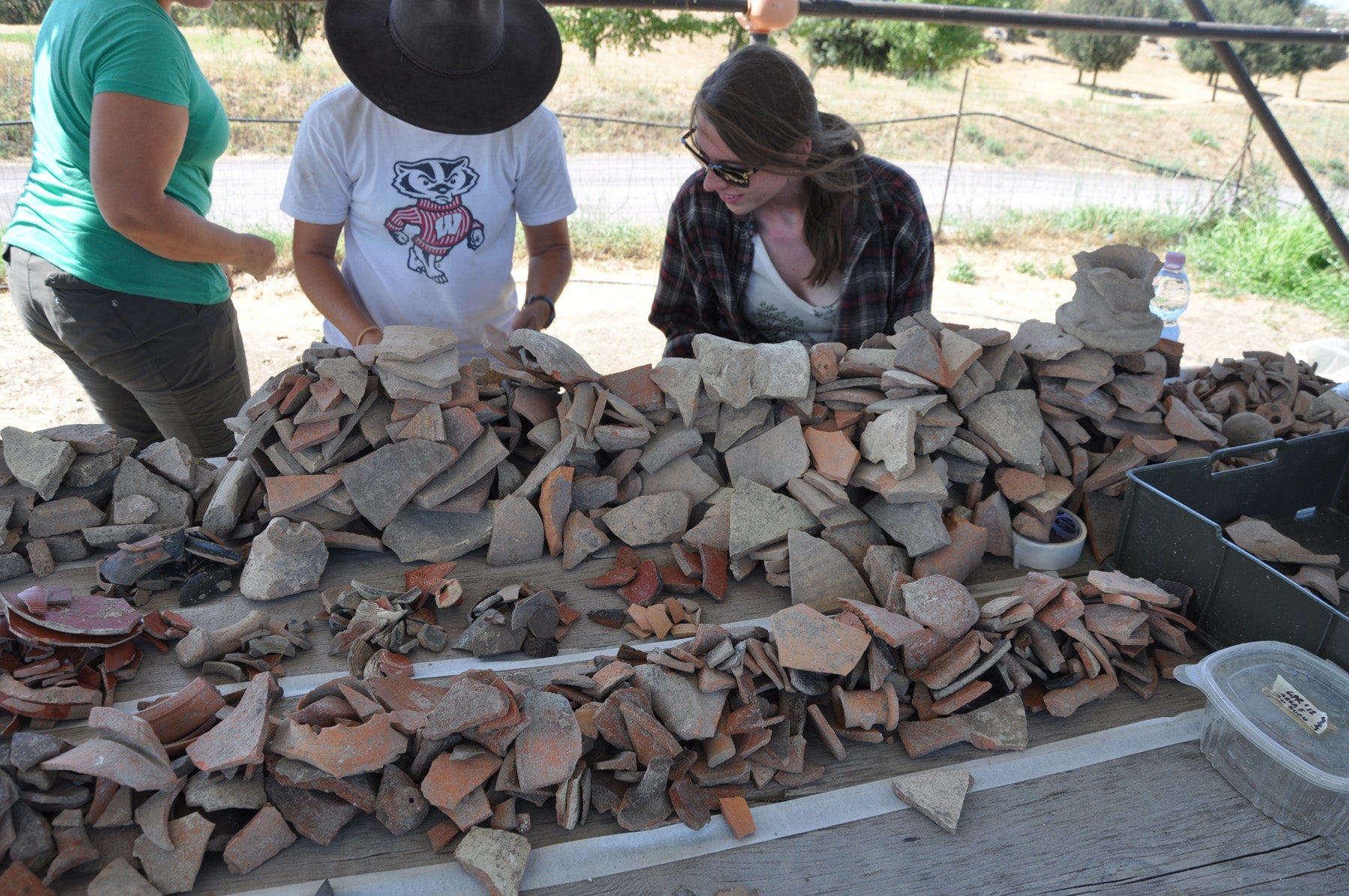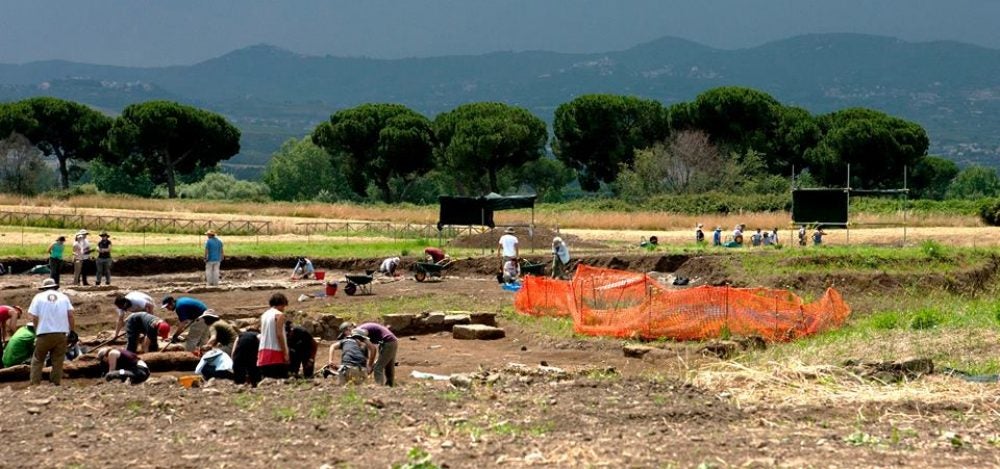The Gabii Project will offer a field program for students and volunteers in 2020; the program will run from June 14 until July 18, 2020.
All qualified students are eligible to apply, not just those associated with the University of Michigan. Applications will be accepted online via the project’s website and the deadline for applying to the program is March 1, 2020. Notifications of acceptance will be made shortly thereafter, and accepted volunteers will receive further instructions in order to secure their spot. No volunteer may participate in the program if the program fee has not been settled in full.
The cost for the 5-week for-credit program, inclusive of accommodation in Rome, Italy, insurance, equipment, and local transportation, will be approximately $4,950 (USD) in 2020. The cost for returning volunteers will be $4,450 (USD).
In order to apply
Please complete the online application form and submit it electronically not later than March 1, 2020.
Work and instruction on-site at Gabii
- Volunteers will work on-site Monday through Friday, usually arriving on-site by 7.30am and leaving around 4.30pm.
- Volunteers will work in small teams supervised by experienced excavators. Additionally, the field program will expose participants to all facets of fieldwork, including working with ceramics and other archaeological materials, environmental sampling, flotation, topography, conservation, and documentation. A regular rotation will be established for field program participants.The Gabii Project also has a built-in Finds School for students interested in gaining an in depth knowledge of archaeological artifacts in pre-Roman and Roman central Italy. Though no prior knowledge is expected, individuals who have prior excavation experience (at the Gabii Project or elsewhere) are highly encouraged in order to deepen their knowledge of the materials one typically excavates.
- Regular site tours (usually once every 7 to 10 days) will help keep all team members up to speed on the progress of excavation work in the various areas of the site.
- Several optional weekend outings will be arranged where guided tours will be offered by staff members. In past years weekend trips have included the Forum Romanum and Palatine Hill as well as Ostia Antica.
Atmosphere and Experience
- The Gabii Project is a large team (50+ people) effort. Teamwork is the key to our success, but the working conditions can be intense. The successful applicant will be ready to work as part of a large team and welcome the opportunity to work and learn cooperatively.
- The combined experience of the Gabii Project’s multi-national staff offers volunteers the opportunities to learn and practice some of the latest and most cutting edge techniques of field archaeology. Additionally, an excellent staff to student ratio guarantees close instruction in field methodology.
Travel
- Volunteers are responsible for covering their own travel costs to and from Italy.
- The point of arrival is Rome, Italy. Rome is served by two airports that handle international traffic. These are Leonardo da Vinci airport, also known as Fiumicino (FCO), and Ciampino airport (CIA) [also known as Aeroporto di Roma-Ciampino or Giovan Battista Pastine Airport]. Fiumicino handles long-haul international flights while Ciampino tends to receive short-haul, EU zone carriers.
- The arrival packet distributed to confirmed volunteers will include specific arrival information and information and logistical details.
Accommodation
- The team will be accommodated in Rome’s Trastevere neighborhood in dormitory/apartments provided and administered by CIEE (Council on International Educational Exchange).
- Student accommodations have two to four bedrooms with one to two bathrooms per residence.
- All accommodations have been renovated recently and include common area, kitchen facilities, refrigerator, washing machine, television, and wireless internet. On-site 24-hour/7-days-a-week logistical support is also included.
- The program fee covers the cost of lunch (Monday-Friday), but not other meals which are self-catering.


Funding
- Students accepted for the field program are encouraged to seek outside funding sources to support their participation as the Gabii Project does not offer need-based financial support.
- Possible sources include one’s home department or institution, as well as various competitive fieldwork fellowships like those administered by the Archaeological Institute of America and the Etruscan Foundation.
For more information, please contact Dr. Nicola Terrenato or Dr. Marcello Mogetta by email (gabii.project@gmail.com).




